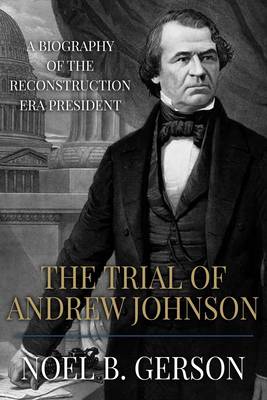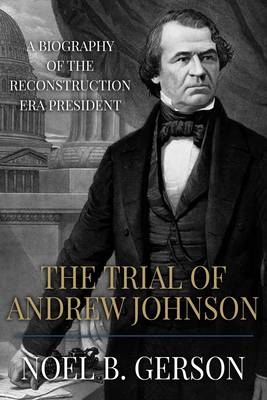
- Afhalen na 1 uur in een winkel met voorraad
- Gratis thuislevering in België vanaf € 30
- Ruim aanbod met 7 miljoen producten
- Afhalen na 1 uur in een winkel met voorraad
- Gratis thuislevering in België vanaf € 30
- Ruim aanbod met 7 miljoen producten
Zoeken
€ 15,95
+ 31 punten
Omschrijving
How do you remove an unpopular president from office? On February 24, 1868, members of the United States House of Representatives voted to impeach President Andrew Johnson on thirteen separate charges of having committed high crimes and misdemeanors against the government and the people. In this impressive biography, Noel B. Gerson examines how these extraordinary events came about, the circumstances leading up to it, and the aftermath of a trial that was unique in the history of the country. Born into poverty and with no formal education, Johnson rose to prominence through perseverance and hard work. Entering politics, he became an adept stump speaker, championing the common man and vilifying the plantation aristocracy. Nominally a Democrat, who advocated free homesteads and education for all, he was soon to discover that not all agreed with his desire to see the nation reunited under the Constitution, as it had been before the Civil War. Sworn in as seventeenth President of the United States following the assassination of Abraham Lincoln in 1865, Johnson faced the enormous task of presiding over the tumultuous first years of Reconstruction, a task made harder by his enemies, notably radical Republicans Thaddeus Stevens, Charles Sumner and Edwin Stanton, who turned the tide of support against him and were instrumental in the campaign to disgrace Johnson and drive him from office. By utilizing a wealth of primary sources, including quoted speeches, letters and press articles, Gerson masterfully portrays a sympathetic national figure devoted to his country and the Constitution, who escaped conviction by a single vote and went on to achieve a level of popularity he had never before known. The Trial of Andrew Johnson is an ideal read for those who wish to find out more about the impeachment trial of Andrew Johnson and his fight for vindication against the radical Republicans in the United States Congress.
Specificaties
Betrokkenen
- Auteur(s):
- Uitgeverij:
Inhoud
- Aantal bladzijden:
- 140
- Taal:
- Engels
- Reeks:
Eigenschappen
- Productcode (EAN):
- 9781800551015
- Verschijningsdatum:
- 8/03/2021
- Uitvoering:
- Paperback
- Formaat:
- Trade paperback (VS)
- Afmetingen:
- 152 mm x 229 mm
- Gewicht:
- 195 g

Alleen bij Standaard Boekhandel
+ 31 punten op je klantenkaart van Standaard Boekhandel
Beoordelingen
We publiceren alleen reviews die voldoen aan de voorwaarden voor reviews. Bekijk onze voorwaarden voor reviews.











